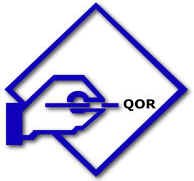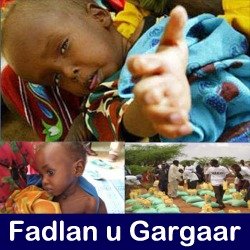After intense fighting in Southern Somalia for the past eighteen months, the Somali forces and backed by Kenyan military have liberated kismayo from Al-Shabaab and its environs. However, we have witnessed attempts by ‘some elements’ to establish a parallel government in Southern Somalia. As a result, we have heard heated debates about Lower Juba Region and in particular Kismayo and judging from what we have heard every other person in the country giving his or her take on how and who should establish a local administration for the region. Too many words that border insults have been thrown the way of President, Dr. Hassan Sheikh Mohamud. In other words, some saying that he should do more to reclaim Kismayo while others have engaged to make loud noises to raise the temperature and appeal to clan sentiments with some telling but the president has appeared undisturbed and neutral. It is clear we have the best Commander-in-Chief for this kind of scenario, yet we don’t appreciate the fact. Indeed, the flux, the panic and confusion over the region have extended far beyond national and international political arena into the media and not surprisingly interest of the unfolding political calculations of different all claiming to belong to the region and as well as Kenya and Ethiopia with different agenda jostling for a position in the matter.
Nevertheless, I am glad that, the president Dr. Hassan Sheikh Mohamud has put to rest all the speculations and innuendoes about his position on the establishments of local administrations for the country and especially Lower Juba which has became a very thorny issue at this heightened of political activities in the region. President, Hassan is the is the most levelheaded in this matter and he is not a clan kingpin, his currency is not deceit but inclusion, compromise, the middle of the road, the way of legality, diplomacy and Islamic devotion and wants any decision to establish a local administration for the country and in particular for Lower Juba should involve wider consultations and blessings from all those clans who claim to belong the region but not a few dozen individuals using the name of their clan and seeking selfish political gains to propel themselves to power.
Yet, the politics of those groups pushing for a local administration in Lower Juba is anchored on clan alliance that will put the future of the country at risk and dismember our national fabric and tip Somalia over the cliff of nationhood. In reality, politics anchored on clan alliance to help define its supporters is always overloaded with expressions that stir up hostilities towards other clans which is potentially dangerous for national reconciliation. Regardless, which sides you are those groups pushing a local administration without Central Government input are propelled by a conclave clan interests and to marginalize other communities in the region. Therefore, it is very much important for these groups to work together with other clan groups in Lower Juba and accept the verdict of the people. I say, “if their alliance is genuine and that they have their clan numbers since politics is about numbers why they didn’t consult other clans in Lower Juba that enjoy a great support from their communities in the region and not making noises like them?
Sadly, these groups want to pose unelected authority In Lower Juba which they have claimed for base of their legitimacy outside the legal framework within which individuals can compete for a State Power in a democracy. In my view, we need to break-away with the past and avoid rehash or its replay and the alliance of these group or any other group in the region should be anchored on principles of who is able to attract the perception that he or her support is base is big and diverse and own up a deep desire and committed convincingly for uniting blocks representing the face of Lower Juba.
They must rethink their position which is a bad taste politically and don’t reflect the expressions and aspirations of the majority of the people in the country and that of the people of Lower Juba. The president, Dr. Hassan Sheikh Mohamud, of course wants to ensure maximum inclusion in the political process of all clan groups of the country in general and in particular the people of Lower Juba. This is to heal past injustices and give chance and fair representation of the poor and minority and indigenous Somali communities in the region and to allow political changes in a sustainable manner over a long period. His argument is hinged on the gross negligence and marginalization of the majority of people in Lower Juba by all previous government since independence in 1960 and who still remain disadvantaged and deprived even when their region is endowed with resources and contributes in revenue. To date, the voiceless people of Lower Juba remain underrepresented in elective and nominative offices and public service appointments which are unacceptable.
Going by experience and the colonial legacy left behind there is a long-standing territorial dispute between Somalia-Kenya over Northern Frontier District aka North Eastern, a region and people that Somalia claims rightfully had always been hers and where the true destiny of this region and its people lay and must find an amicable solution to resolve it. It is a widely known fact that Somalis in NFD overwhelmingly declared in 1962 to an independent Canadian-Nigerian Commission that they wished to secede from Kenya before independence to unite Somalia Republic. Also, a delegation of Somalis was again assured by the British Secretary of State Lord Lansdowne, in July 1963 that, an ‘honorable settlement would be made before Kenya becomes independence in December 1963 but Britain under pressure relegated its promise.
Second, Kenya has paid a huge cash bribe to some corrupt TFG officials presenting them with opportunity and a chance to remove themselves financial straits to sign the ill-fated Memo of Understanding where Kenya put under dispute Somalia’s territorial waters in order to extract oil unlawfully from Blocks 12A and 12B. The Kenyan, allegations are entirely unfounded and the right of ownership of the Blocks 12A and 12B off the coast of Somalia were negotiated between Somalia-USA but they couldn’t agree on the profit sharing arrangements. Worse, this issue is complicated by the involvement of Norway that delved into this problem but instead it should have advised the Kenyan government on the best legal route to tread. Norway, in my view should tell the Kenyan government to stay clear of Somalia’s territorial waters that was never under dispute but seek to settle amicably with Somalia the dispute over NFD. However, it is important to note that Norway has no reason to violate our sovereignty or have high expectation to benefit the oil from Blocks 12A and 12B which belongs to Somalia and should remain outside of this African problem.
Whatever, the outcome of the conflict in Lower Juba aka Lower Juba, Middle Juba and the desire of some to include Gedo Region in the mix it has again exposed deep flaws of the 18 regions a legacy left behind by Gen. Mohamed Siad Barre where is now to fight to bitter end every where in the country by all clans. There is undoubtedly a right approach to the problem in Kismayo making the situation normal, peaceful and forestall there the inflammatory pent-up emotions of the past within the inhabitants of Lower Juba in particular who are not going to meekly watch the current events progress.
Somalia is transiting dangerously from civil and political chaos although we have a long way to go but yet we can’t allow repeat of the past injustices in Lower Juba and in particular the city of Kismayo. What, I am saying is that the individuals supported and bankrolled by Kenya are compromised and thus being beholden, they are unable to discern right from wrong. Believe, me you they will change sides at the drop of a hat.
What about inconvinient and ugly truth that these individuals are involved is heavily in the illegal charcoal trade? Thus, Kenya needs to come aboard to fully support and coordinate its activities and military operations in Southern Somalia with the Somali government as agreed. Sadly, when Somali government started to assert its authority over the Lower Juba, particularly Kismayo after it was liberated from Al-shabaab and cautioned the hurrying-up by some individuals thought working for the government to establish a local administration without guidance from the Central Government, Kenya waivered its supporting role in violation of Joint Communiqué between Somalia-Kenya, signed on October 31, 2012 by RT Hon. Raila Odinga, prime minister, Republic of Kenya and H.E Dr. Abdi-weli Mohamed Ali ‘Gaas’, prime minister, Transitional Federal Government of Somalia. Also, Kenya has violated an earlier agreement between the two countries in Mogadishu, Somalia on October 18, 2011 on the Operation of a Joint Mechanism to manage the Joint-Security Operation in Southern Somalia.
However, what matters for Kenya is to honor the agreements with Somali-IGAD with its policies, activities and military operations in Southern Somalia and stop bankrolling wishful thinking individuals who only want to uplift their egos and waning political fortunes to seek to stamp false authorities in the region’s politics with its backing.
Dr. Abdi Mohamed Ulusso
drabdi2000@yahoo.com
Sixid: Sawirka kusoo baxay qoraalka ma ahayn qoraaga.




































comment closed after 30 days / Jawaabaha waa la xiray ama waa la joojiyay wixii ka badan 30 cisho.